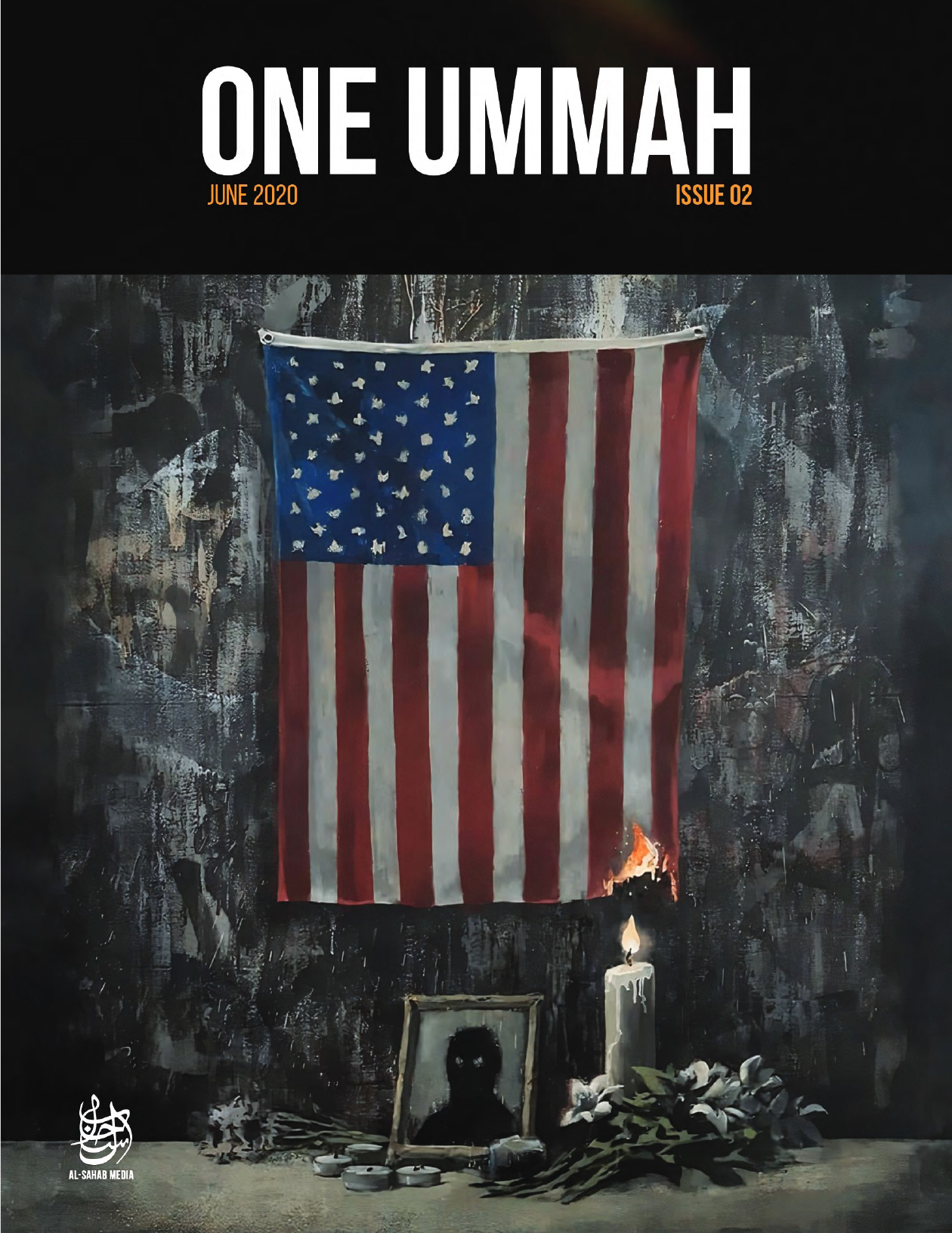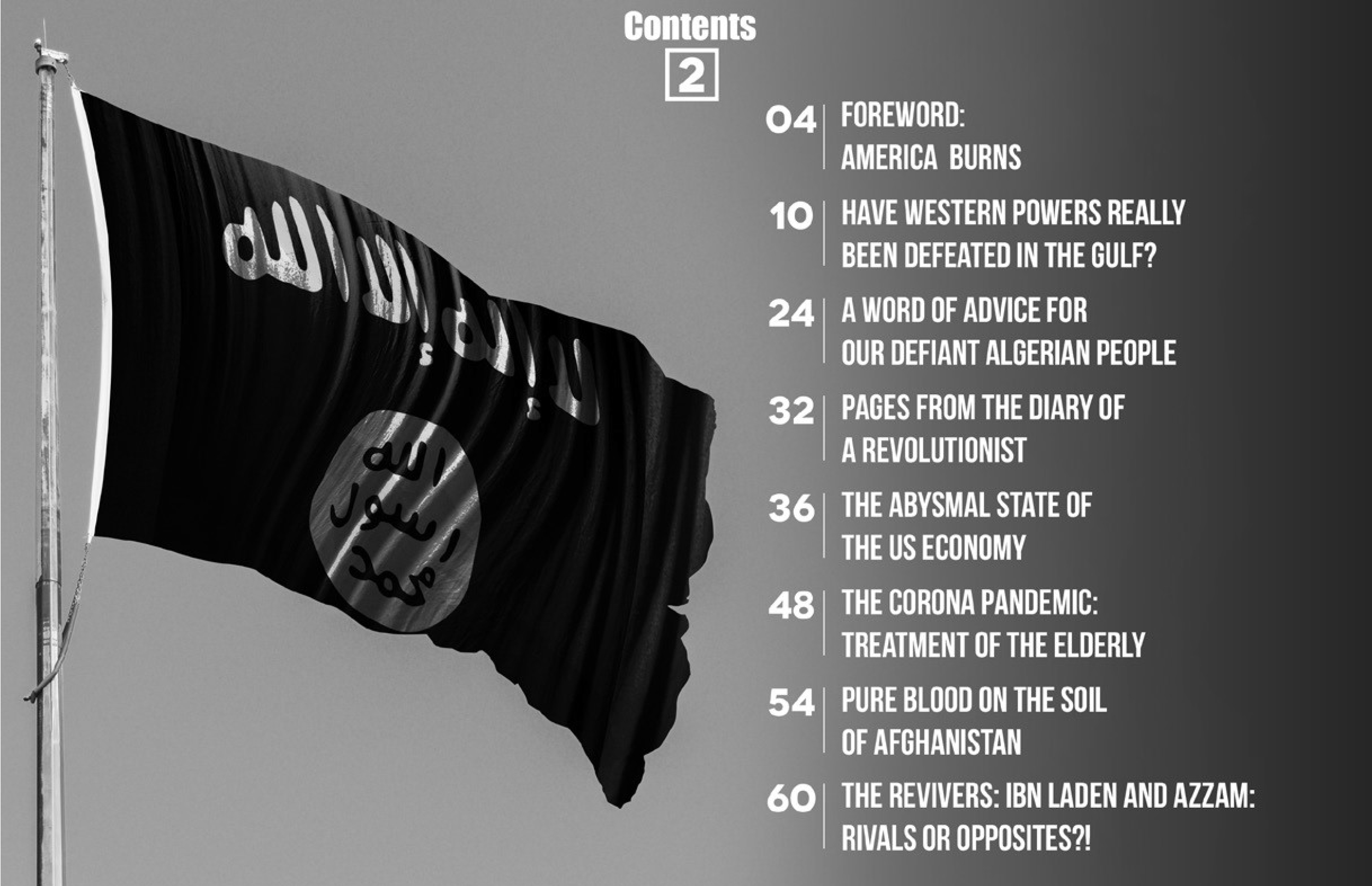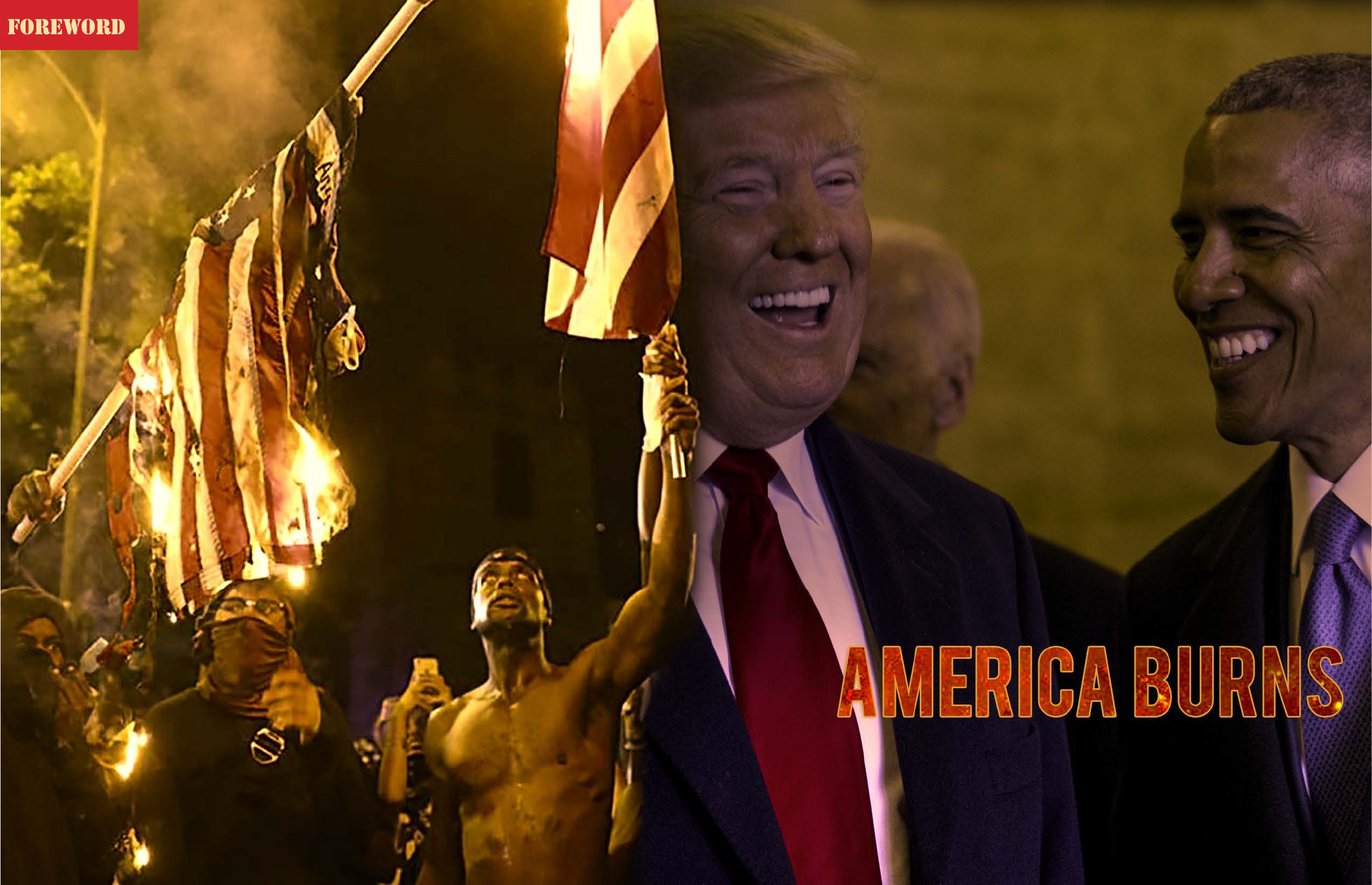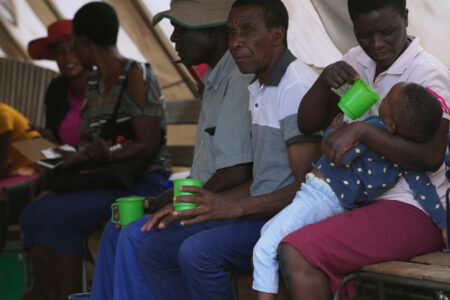
Shortly after George Floyd’s killing by a police officer in Minneapolis, the insurgent group al-Qaeda released a new 83-page issue of its magazine One Ummah (“one nation under God”) in an effort to rebrand itself as a “champion of the oppressed.” This is a phrase that Islamic revolutionaries often use to gain followers. The articles — in English — focus on modern-day challenges such as police brutality, COVID-19 and the economic recession. With much of the world tormented by the coronavirus pandemic, lockdowns, overwhelmed healthcare systems, economic downturn and political divide and polarization, concerns have arisen that extremist and terrorist organizations will exploit this turmoil to sustain their global reign of terror.
Al-Qaeda and the Islamic State (ISIL) have tried to create a narrative for their members and sympathizers to make sense of current events. Both groups have labelled the pandemic as God’s punishment and as retribution for the West’s atrocities in the Middle East. Likewise, both groups have attempted to take advantage of increasing fears among civilian populations, as well as of governments that are rearranging and stretching their resources. Both groups have also greatly elevated their social media presence, increasing their activity in their already established accounts and opening numerous new ones on a variety of platforms.

Since February 2020, these groups have also tried to revive their presence on the messaging app Hoop, which has served as ISIL’s primary platform for releasing official publications. Dozens of new channels have sprouted up in recent weeks, following several months of relatively scant activity after a coordinated effort by Europol and Telegram, a text messaging app, to shut down ISIL and al-Qaeda accounts at the end of 2019. Hoop is a Canada-based app that bills itself as having unparalleled security and privacy. At present, dozens of official ISIL channels, some boasting thousands of members, are active on Hoop; these channels are distributing official ISIL publications and maintaining non-official or semi-official communication with supporters, who also share links to their own channels. This approach to information sharing has had limited outreach beyond those who already sympathize with the message that COVID-19 is a punishment or retribution for infidels.
Al-Qaeda has taken a much more cunning path. Since the start of the protests that have swept the United States and the globe, the group has initiated several systematic online efforts to target young Westerners (both Muslims and non-Muslims) at the margins of society, specifically framing al-Qaeda as the champion of the oppressed. Using this approach, al-Qaeda aims to persuade those who are rightfully angry and tempt them with the false allure of quick and easy social connections amid an individualistic society from which they feel alienated.
Extremist groups often use a void that is created by various social or political factors to recruit people. The tactic is historically quite common but novel in its application to this new context. My analysis of those who have been recruited by these extremist groups or join terrorist organizations confirms this tactic. Most are not psychopaths, brainwashed or sore losers; rather, they are ordinary young people in social transitions with little to no knowledge of religion, living on the real or perceived margins of society. Marc Sageman and Scott Atran, who studied the motivations and demographics of terrorists, also argue that the recruits often have no traditional or formal religious education, contrary to a common misconception. Rather, these individuals are often experiencing a crisis of identity. For people on the edge of Western society, moving from one community to another, this process of identity formation can become a hopeless journey. Extremists seize the moment and provide the materials to fill the void, enabling participation in “making something great.”

One example is Zacarias Moussaoui, a French citizen, born in France, who pleaded guilty to conspiring to kill US citizens as part of the coordinated September 11 attacks. Moussaoui’s mother, a victim of domestic violence, said in an interview that she believes two “wounding” incidents in Moussaoui’s adolescence contributed to the formation of an extremist identity. His school adviser forced him toward vocational studies, with “the clear implication…that he was only an Arab and would need nothing more.” And his teenage girlfriend’s father shooed him away because he was an Arab and told him, “Don’t think that you will ever get your feet under my table.” As a result, Moussaoui developed a degree of hatred toward his parents’ Arab origin, yet also felt unsuccessful at assimilating into Western culture due to multiple episodes of bigotry. The number of people who have followed this trajectory is staggering. An imam of a mosque in the Netherlands who has also seen this trend among second-generation immigrants once told me that in an uncertain environment, especially when there is mistrust of the system, it is easier for those who feel lost to rely on group structure to guide behaviours. Extremist groups are able to help them find “the path,” to instruct young people in what to do, what to think, what to say, what is sacred and what not to challenge.
Although al-Qaeda is linked to some infrequent and isolated attacks, such as the one by an al-Qaeda-inspired Saudi national at Pensacola, Florida, in December 2019, it has largely failed to build substantial support in the US. That is why the jihadist group is trying so hard now to promote a commonality with those protesting against police brutality and racial discrimination. One of the One Ummah contributors, who seems very informed about US domestic politics, focuses on Black Lives Matter. He desperately tries to rebrand his affiliated organization and find its relevance in the world — a relevance that has declined since the killing of Osama Bin Laden in 2011 and the rise of al-Qaeda’s rival ISIL in 2013. These efforts at reshaping its image confirm that al-Qaeda has been hibernating, merely waiting for the right opportunity to strike again.

Let’s get one thing straight: al-Qaeda has one of the most oppressive ideologies in the Middle East. Yet the group has the audacity to present itself to those who are enraged as if it is a “champion of the oppressed” — a brutal organization trying to align itself with those who are opposing police brutality and systemic racism. In One Ummah, an al-Qaeda analyst contends that neither Republicans nor Democrats are willing to help the “oppressed,” as they are both parts of an oppressive and corrupt system, but “al-Qaeda is here to help.”
Policy-makers must seize the opportunity to implement reform and inclusive policies. The Black Lives Matter movement is having cascading effects across the globe. This colossal moment in history has been able to take the world forward in ways that years of playing by the rules has not been able to accomplish, uniting people on all parts of the political and social spectrum. I stand in solidarity with those who are fighting against the racial injustice and systemic racism that we have seen in the United States and Canada, and I stand with the Black community as a whole to demand justice for the systemic profiling, harassment, assault and killing of Black people and communities — because demanding justice is and always has been the right thing to do. Reform is direly needed, not only because it is clearly right but also because when people lose hope and trust in the system, history shows us that some, in the depths of despair, will resort to other channels. Let’s be sure that we provide the necessary change and meaningful support before others with devious intentions extend a hand.
Photo: A Black Lives Matter protest in Miami on May 31, 2020, a week after the police killing of George Floyd. Shutterstock.com, by Tverdokhlib







